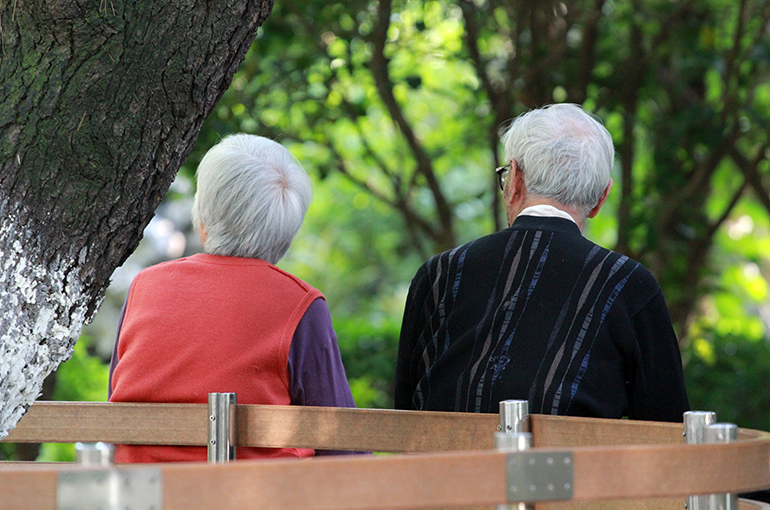 China Needs Urgent Action Plan on Aging Population Issue, Expert Says
China Needs Urgent Action Plan on Aging Population Issue, Expert Says(Yicai) March 20 -- China should speed up its creation of an action plan to address population aging, the deputy director of a related research center said to Yicai in an exclusive interview.
Six years ago, China included a proactive response to population aging as part of its national strategy so it is urgent to further implement it through top-level design, said Dang Junwu, deputy director of the China Research Center on Aging.
Dang, who is also a member of the first expert committee of the National Working Commission on Aging, answered Yicai's questions in the interview below.
Yicai: What are the highlights and updates of this year’s government work report regarding population aging?
Dang: There are two key changes this year. First, we have shifted our focus from taking care of the elderly to adjusting the age structure of the population. We are not only improving the pension policy but also formulating birth policies with a package of measures to prevent excessive population aging.
Second, we have upgraded from solving the problems of each group individually to building a comprehensive livelihood security system, covering all stages from birth to old age. This can lay a solid foundation for people’s livelihood security in advance when China is still a moderately aging society, preparing for a large-scale elderly population in the future.
Yicai: The silver economy concept is increasingly linked to the inspirational policy concept of "new quality productivity." How will that change the connotation?
Dang: This year’s economic policies emphasize benefits for people’s livelihood and consumption promotion. As an important part of people’s livelihood, livelihood security will be rebuilt into the development of the silver economy, per the government work report.
Challenges contain opportunities. It [elderly care] is not only a service for people’s livelihood, but also a new economic growth point. The senior industry covers many fields and more than 1,000 subdivisions, with broad prospects, and is expected to account for one-third of China's gross domestic product in 2050.
At the same time, the response to the aging population has been upgraded from a proactive attitude to a scientific and coordinated response, gathering the strength of all parties, developing smart elderly care with the help of science and technology, and integrating national development.
Yicai: What are the highlights and innovations in the silver economy and policy this year?
Dang: First, the level of pensions should be increased. The minimum standard of basic pensions for urban and rural residents will be raised by CNY20 (USD2.80), and pension payments should also be appropriately hiked by establishing a new scientific adjustment mechanism.
Second, the concept of science and technology plus finance drives the silver economy, and policies support smart robot nurses. Consequently, a new financial system is built.
Third, elderly care has changed from material assistance to a combination of material assistance, social services, and mental health care. Fourth, we are promoting intergenerational synergies, so that young people can benefit from the "aging dividend" and have new directions for innovation and entrepreneurship.
Yicai: What are the key bottlenecks in managing population aging this year?
Dang: Some of the issues are rural elderly care, care for the disabled, home-based care, and inclusive care.
Regarding rural pensions, the system should combine the strategies of rural revitalization and coping with the aging population. We will increase farmers’ income, provide centralized support in qualified areas, explore service models, and establish a long-term care insurance system.
Another new measure is community support for home-based elderly care, which should integrate home, community, and institutional services. Inclusive elderly care services require a system for middle-income groups, and services should be based on inclusiveness.
Yicai: What are your expectations for the reform of elderly care during the 15th Five-Year Plan (2021-2025)?
Dang: First, we should formulate a national action plan to deal with population aging as soon as possible, clarify new concepts and systems, avoid imbalances, and achieve an equilibrium between urban and rural areas.
Second, we should upgrade the silver economy to an elderly economy and industry, guarantee pensions in the short term, adjust economic strategies in the long run, and create an industrial system that adapts to changes in population structure.
Third, we should attach importance to the role of young and middle-aged people and provide them with job vacancies and entrepreneurship opportunities that bring them income to create a population aging strategy full of hope.
Editor: Emmi Laine